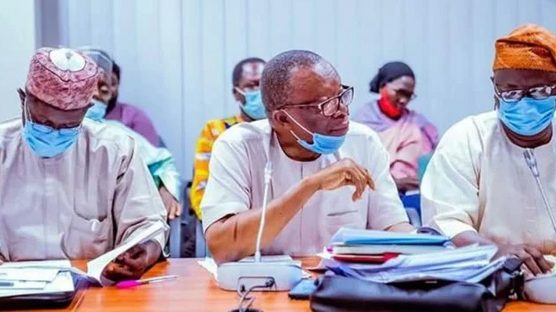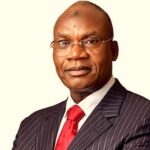It has become imperative for me to chip in a word on the ongoing Academic Staff Union of Universities (ASUU) strike which has kept many Nigerian youths at home since February 2022. The strike has become intractable and it looks like all bets are off – again. President Muhammadu Buhari has given a few deadlines and ordered several entities to do the needful without achieving results. If the president himself cannot achieve results, one wonders who can. It is a sad situation as Nigerian youths who are undergraduates in public universities are again being alienated from their nation, brewing for another crisis in the guise of the October 2020 EndSARS which almost tipped Nigeria into an unknown spiral.
ASUU says the government is owing its members some promises running into the trillions of naira. There is also the big issue of how the salaries of university lecturers are paid. On the former issue, the government says it is broke – and it really is, largely to its own profligacy and planlessness as politicians went for our little commonwealth like monkeys rushing for bananas. The economy stands on a precipice today – a cliffhanger like never before. We service our debts with multiples of what we earn, meaning that we have to borrow, to service those debts. And things could get worse when debt principals kick in. The Ministry of Finance complains often about our dismal revenue capabilities, but is permanently and politically incapacitated or captured. The organised private sector as represented by big guys in NACCIMA, LCCI, MAN and so on, has taken an antagonistic position to any attempt by government to raise revenue – be it excise duties, VAT, sugar tax, whatever. They oppose vehemently. And the ordinary elite (among whom may be university lecturers) equally vehemently resist other revenue heads like property taxes, luxury taxes etc. We are in a fix. Aren’t we?What is more? The great NNPC, our universal cash cow, has now become a limited liability company, meaning we would all, as a people, have to wait for that company to determine its financial performance at the end of each year before we collect anything that may be due by way of taxes and dividends. I disagree with the tax guru, Taiwo Oyedele, that the government may continue to expect monthly remittances. No limited liability company should spend freely every month without a care for how their year may eventually turn out. Every Nigerian should protect that company from being still run like some sick organisation. If that is what government expects, we should try to frustrate them.
- ASUU: Gombe varsity calls off strike, opens register for lecturers
- FRSC impounds 2,823 unregistered motorcycles, arrests 13,081 riders
In short, Nigeria is really broke. The government cannot keep up with most of its obligations. The government has been borrowing to pay salaries, no doubt. Apart from the N41 trillion global debt, another N20 trillion sits in the Central Bank of Nigeria. It’s just incredible. ASUU should take notice.
On the matter of IPPIS and UTAS, I sway on the side of the government. If the government has finally found some system that helps it keep down the occurrences of ghost workers and wastages, we have to support such an idea against any entity that seeks to water it down. University lecturers are Nigerians too. They are not above the law. Like Professor Eyitope Ogunmodede (VC, Obafemi Awolowo University) advised, the ASUU had better start figuring out how it could work with government to tweak the same IPPIS to take into consideration some peculiarities of the university system. The thing is that university lecturers sometimes teach in more than one institution. But many lecturers abuse it. Professor Rasheed, the Executive Secretary of the Nigeria Universities Commission (NUC), once stated that he knew a friend who lectured in 12 universities up North. How does this work? The lecturer simply shows up once or twice in a semester, thus subjecting poor students to trauma because he teaches little but cashes out big time. Even with IPPIS, lecturers still have opportunities to teach ‘full time’ in one federal university and combine that with appointments in state and private universities. It looks like the same corruption that has seized and contorted the mainstream public sector has since berthed in academia and wreaked much havoc.
How can a lecturer who indulges in such practices be serious about research and innovation? The position of a university lecturer is one of those that should be protected by ethics and integrity. These acts are however largely responses to years of neglect. Our lecturers have suffered for decades. And then, like everyone else, they got smart. But it is a short walk between combining several places of employment, delivering too little to poor students, and finding oneself asking for sexual favours or money from the boys. It is a slippery slope. Now, I’m not alleging that this is what is happening. I have friends in academia and would one day want to add my bit in that area. But these are the possibilities. These are what the government has alleged.
From my perch, I know a few of these labour leaders who are billionaires in their own rights. I don’t know how they do it. In Nigeria, labour leadership positions have become a career, and those who lead the very ‘juicy’ ones have no tenure. They become like monarchs. How such stupendously rich people believe they can keep poor students in this state makes me wonder.
We have a big problem
The entire imbroglio made me wonder whether we know the true essence of education. I think many Nigerians still see education as:
- Bragging rights
- Certificate to seek employment
- Human rights that the state should pay for
- A route to speaking fantastic English language and getting prestige
- A route to a nice position in government, with access to slush funds and corruption.
But in my view, and from what I’ve seen around the world, education should be for a people to be able to develop their country, help in attaining collective prestige driven by innovation and productivity, and helping our fellow men to achieve better living standards, no matter where they may be on the surface of the earth. Education should be about value-addition. In Nigeria, we aren’t adding value. We all gather and point fingers at politicians and governments, but when academics who should be able to think better and deeper than anyone else in society have given up themselves, hope seems lost.
The ASUU problem may not be solvable given the facts on ground. No one is even ready to tell the truth about what is going on. Is ASUU being reactionary? Are they just acting up in retaliation for the decades of recklessness of government? Can they spare some time for self-introspection? Can the students too? Can the alumni of our universities?




